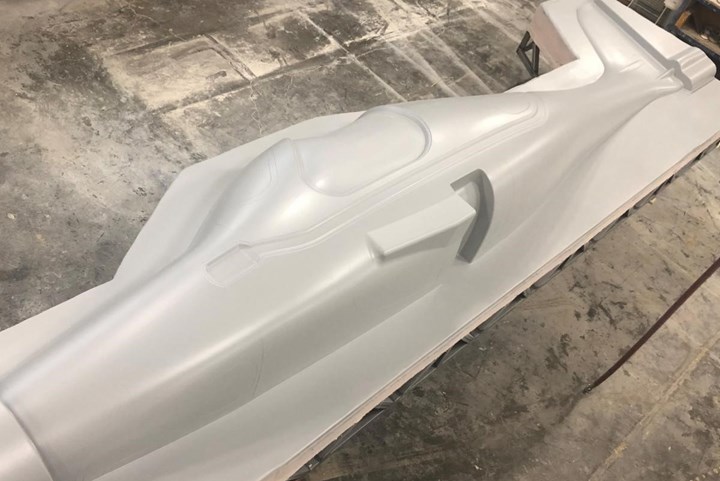Bye Aerospace eFlyer 2 assembly underway
All-electric aircraft nears FAA certification with composite fuselage and wing assembly, and a current backlog of 717 purchase deposit agreements.

Photo Credit: Bye Aerospace
It was reported on March 1 that assembly of the all-carbon fiber fuselage for Serial #001 of Bye Aerospace’s (Denver, Colo., U.S.) two-seat all-electric eFlyer 2 is now underway.
George E. Bye, CEO of Bye Aerospace, notes that images like the one shown above of the fuselage assembly illustrate important eFlyer 2 program progress. “We appreciate the high-tempo level of support that Steve Ruege and his great team at CUG are giving to this project,” Bye says.
Bye Aerospace contracted with Composites Universal Group (CUG, St. Helens, Ore., U.S.) back in January to begin assembly of the eFlyer 2’s first major components, the fuselage. CUG will also reportedly assemble the Toray Composite Materials America (Tacoma, Washington, U.S.) carbon fiber composite wings for the aircraft.
Bye has also reported that most System Specific Certification Plans (SSCPs) are nearing completion and in final approval coordination with the FAA. “Even with the challenges presented to us by the ongoing COVID-19 pandemic, our team remains laser focused on collaboration efforts with the FAA on the eFlyer 2’s certification program,” he says.
In addition to these developments, Bye Aerospace now has a backlog of 717 purchase deposit agreements for eFlyer 2, four-seat eFlyer 4 and other Bye Aerospace all-electric aircraft. According to Bye himself, “We are closing several new agreements and expect to make additional market announcements very soon.”
Related Content
-
Plant tour: Albany Engineered Composites, Rochester, N.H., U.S.
Efficient, high-quality, well-controlled composites manufacturing at volume is the mantra for this 3D weaving specialist.
-
Welding is not bonding
Discussion of the issues in our understanding of thermoplastic composite welded structures and certification of the latest materials and welding technologies for future airframes.
-
Infinite Composites: Type V tanks for space, hydrogen, automotive and more
After a decade of proving its linerless, weight-saving composite tanks with NASA and more than 30 aerospace companies, this CryoSphere pioneer is scaling for growth in commercial space and sustainable transportation on Earth.
















